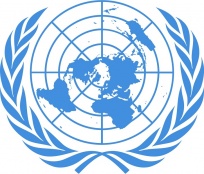On 14 July 2023, during the 53rd session of the UN Human Rights Council (HRC or the Council), Member States adopted a resolution titled “Implementation of Human Rights Council resolution 31/36” by a majority of votes (31 in favour, 13 abstentions, and 3 against). Al-Haq deeply welcomes the resolution put forward by the Organisation of Islamic Cooperation to ensure the full implementation of the United Nations database of businesses facilitating Israeli settlements in the Occupied Palestinian Territory, which has been suffering chronic under-implementation primarily due to inadequate political will and ostensible bureaucratic obstacles.
While HRC resolution 31/36, adopted in 2016, clearly provides for the annual update of the database of business activities, the database itself was first released in 2020 and was subsequently updated only once in June 2023. As such, the resolution “requests the Secretary-General to allocate the financial and human resources and expertise necessary to enhance the capacity of the Office of the United Nations High Commissioner for Human Rights [OHCHR]” to fully implement resolution 31/36, annually update the database, including both the addition and removal of businesses from the database, as appropriate, and present the database on an annual basis to the Council. Prolonged delays in the update of a UNHRC-mandated database are not only damaging to the integrity and credibility of the HRC and OHCHR but also serve to shield Israel and those companies benefiting from or contributing to Israel’s internationally wrongful acts from their international legal responsibilities.
Al-Haq further welcomes the recent publication of the partial long-overdue update of the database issued by the OHCHR on 30 June 2023, and commends the High Commissioner for Human Rights, Mr Volker Türk, for his strong and principled stance in ensuring that the database is released despite the many challenges. Updating the database demonstrates the High Commissioner’s commitment to human rights, justice, and accountability in the face of reported political pressure and interference exerted on the OHCHR. This significant step also complements the extensive efforts carried out by Palestinian civil society and human rights defenders that are being attacked and silenced for voicing their opposition to Israel’s unlawful policies and practices and pushing for international justice and accountability. Nevertheless, the Office of the High Commissioner applied a one-sided approach to updating the database by removing businesses that have ceased conducting reportable activity and did not include new businesses that began, during the reporting period, to conduct reportable activity. Such an approach is inconsistent with the mandate of providing a comprehensive update to the Council and runs the risk of being abused by business actors seeking to avoid listing.
The release of the updated database and the adoption of a resolution calling for adequate resources and expertise to ensure the full implementation of the database with an almost unanimous vote are important steps forward, which should be celebrated and applauded. They also demonstrate the unwavering commitment of the international community to fighting state and corporate impunity. In that spirit, we stress that future updates must be conducted annually, with clear and regular reporting deadlines, including both the addition and removal of businesses from the database, as appropriate, to ensure accurate and comprehensive information for all stakeholders involved, including businesses in their assessment of activities in compliance with their human rights due diligence duties.
We regret that three HRC member States, which are the US, the UK, and Czechia, failed to vote in favour of the resolution to ensure the full implementation of the database – a regressive setback from when the US had abstained and the UK voted in favour of the UN Security Council 2334 (2016) condemning Israeli settlements as unlawful. We believe that this constitutes a dangerous and obvious employment of double standards, and urge states to align their stance on the database with international human rights standards and states’ international obligations not to recognize it as lawful nor render aid, and to bring to an end internationally wrongful act.


